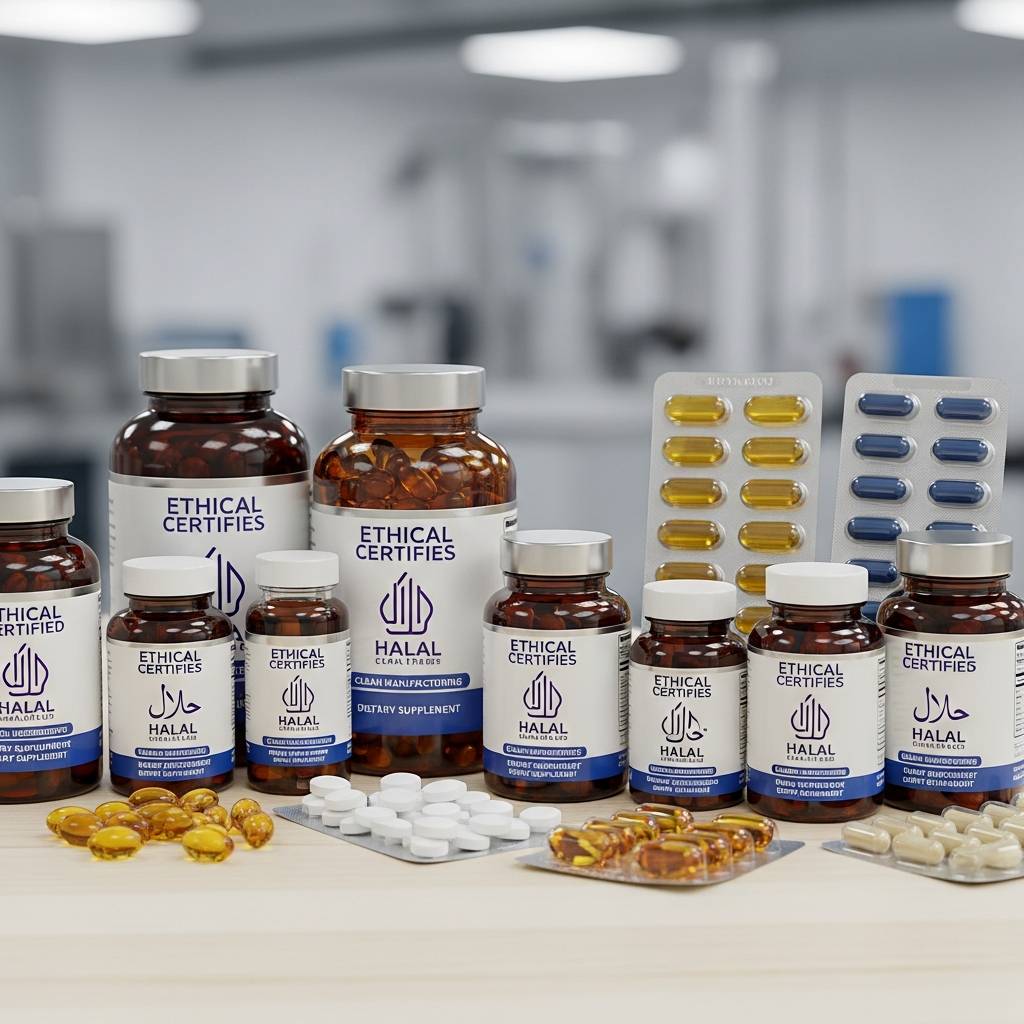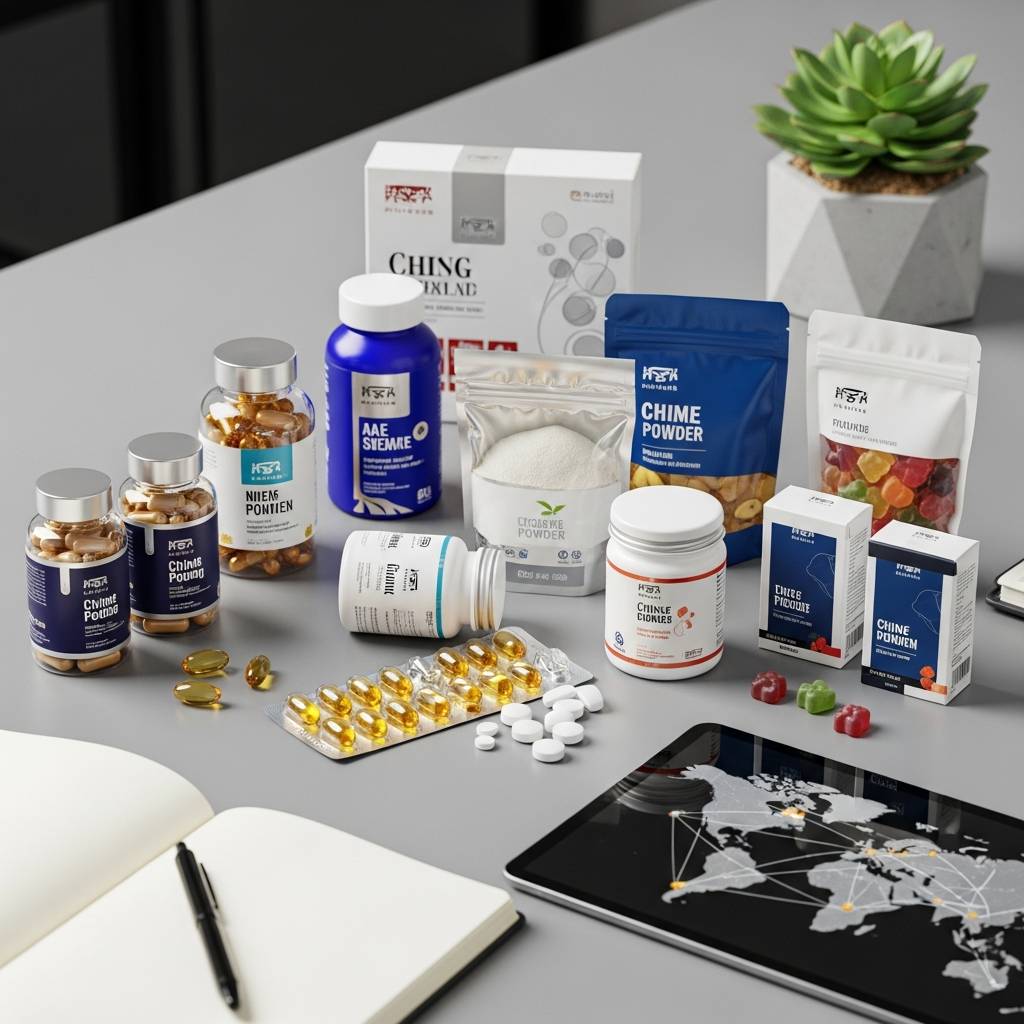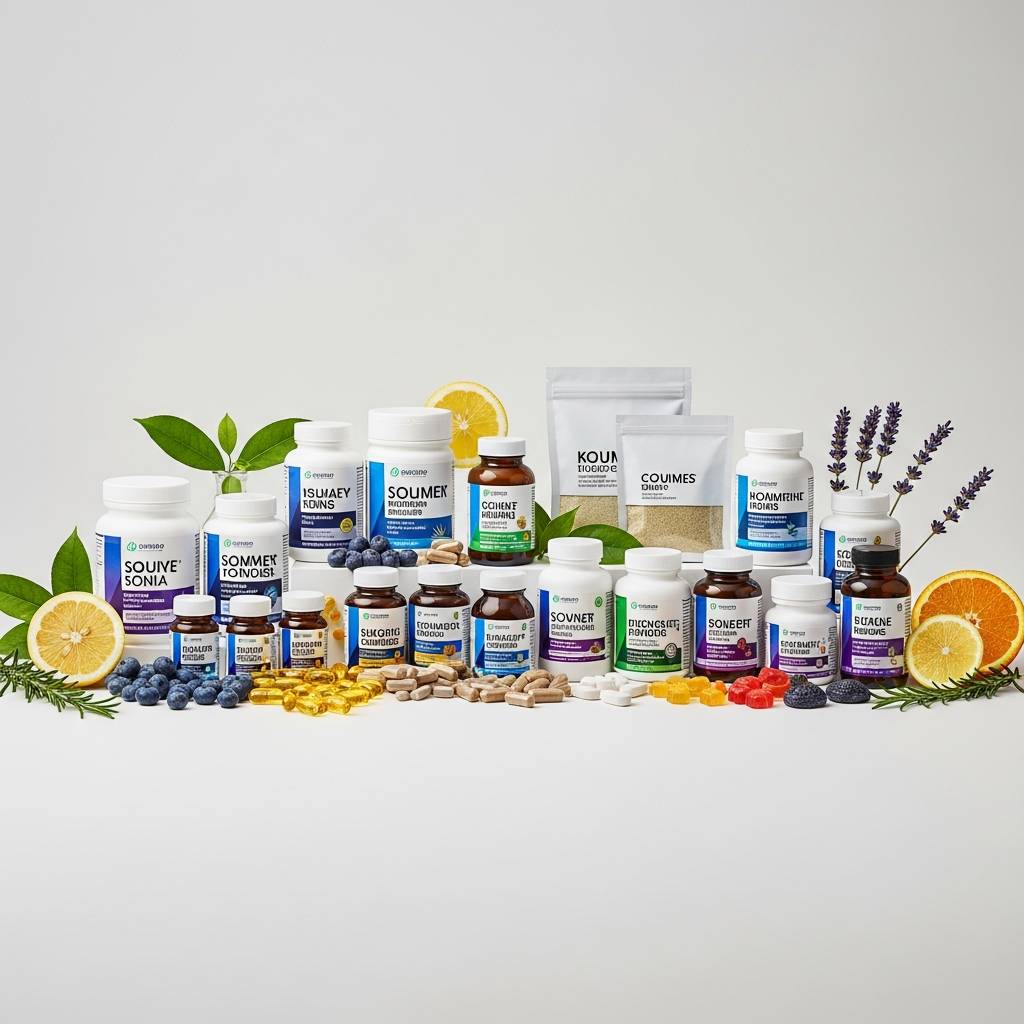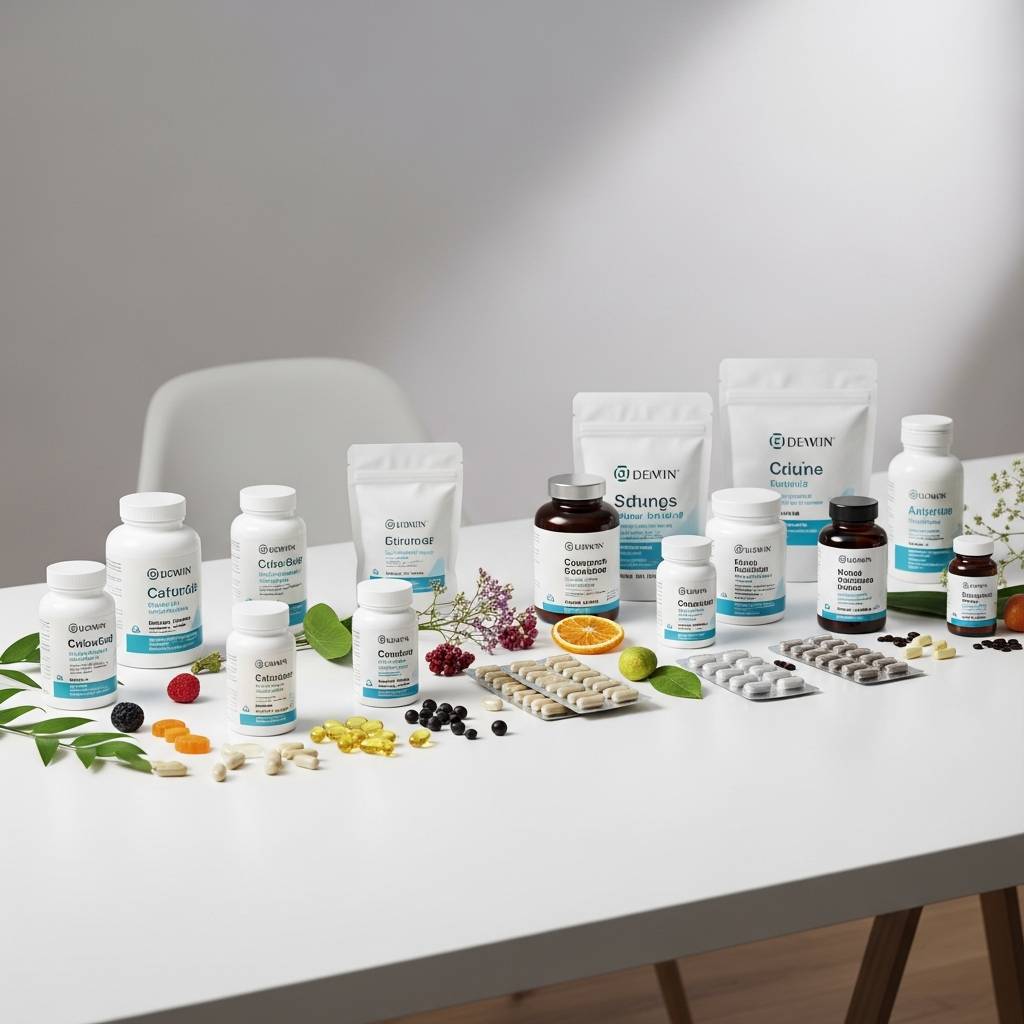At ZoomsHeal, we are a trusted manufacturer of high-quality dietary supplements. With our own state-of-the-art manufacturing facility and certifications like GMP and ISO, we provide reliable, custom powder supplement solutions to meet your brand’s needs. Our expertise ensures that every product is made with precision, quality, and compliance with industry standards.
1. Market Trends for Powder Supplements
The global demand for powder dietary supplements has witnessed significant growth in recent years. From protein powders for fitness enthusiasts to plant-based supplements targeting vegan consumers, the powder supplement market is diverse and expanding rapidly. The growing focus on health, wellness, and performance optimization has made powder supplements an attractive option for consumers worldwide.
Why Powder Supplements Are Gaining Popularity
Powder supplements are gaining popularity for several reasons:
-
Convenience: Powders are often more portable and easier to use than pill or liquid forms. Consumers can mix them into smoothies, shakes, or even water, making them an excellent option for on-the-go nutrition.
-
Customizability: Powdered supplements are highly customizable. Whether it’s for weight loss, muscle gain, or immune support, powders can be easily tailored to meet specific health goals.
-
Bioavailability: Powders tend to be more bioavailable compared to tablets or capsules, meaning the body can absorb and utilize the nutrients more effectively. This is particularly beneficial for active individuals who need quick nutrient absorption.
Market Segments for Powder Supplements
Powder supplements are used across various market segments, including:
-
Sports Nutrition: Protein powders, amino acids, and pre-workout formulations are hugely popular in the fitness industry.
-
Weight Management: Powders like meal replacement shakes and fat burners are targeted toward those looking to manage their weight.
-
Immune Health: With a growing interest in immunity-boosting products, powders containing vitamins, minerals, and plant extracts are increasingly popular.
-
Beauty and Skin Health: Collagen powders and other beauty-related supplements are gaining traction in the wellness market.
2. The Powder Supplement Manufacturing Process
The production of powder supplements involves several intricate steps, each crucial to ensuring the product’s quality, consistency, and efficacy. Let’s break down the manufacturing process:
Step 1: Sourcing Raw Materials
The first step in powder supplement manufacturing is sourcing high-quality raw ingredients. Depending on the type of supplement, raw materials can include proteins (whey, casein, plant-based), vitamins, minerals, amino acids, and various herbal extracts. Suppliers must be thoroughly vetted to ensure they meet quality and safety standards.
-
Quality Assurance: Ensuring that raw ingredients are free from contaminants and meet the required nutritional specifications is essential for product integrity.
Step 2: Formulation and Blending
Once the raw materials are sourced, the next step is formulating the supplement. This step involves selecting the right combination of ingredients to achieve the desired effect, whether it’s muscle growth, weight loss, or immune support.
-
Blending: The ingredients are carefully blended in large-scale mixing equipment to ensure uniformity. This is critical in powder manufacturing as inconsistent blends can lead to variations in nutrient concentrations.
Step 3: Drying Process (Spray Drying, Freeze Drying)
The drying process is one of the most important steps in powder supplement manufacturing. The goal is to remove moisture from the ingredients while preserving their potency and preventing degradation.
-
Spray Drying: A common method for drying liquid supplements into powders, spray drying involves spraying a liquid mixture into a hot air chamber, instantly turning it into powder.
-
Freeze Drying: In some cases, freeze drying is used for sensitive ingredients like probiotics or vitamins, as it preserves more of the nutrients by freezing the mixture before drying.
Step 4: Quality Control and Testing
At every stage of production, quality control checks are performed to ensure that the product meets the desired standards.
-
Testing for Potency: Ensuring that each batch has the correct levels of active ingredients.
-
Microbiological Testing: Checking for contaminants like bacteria, mold, or pathogens that could affect the product’s safety.
-
Stability Testing: Ensuring that the powder maintains its potency and effectiveness over time, especially when stored under varying conditions.
Step 5: Packaging and Labeling
Once the powder is produced and tested, it is ready for packaging. Packaging plays a key role in ensuring the product’s shelf life and protecting it from external elements like moisture, light, and air.
-
Packaging Types: Powder supplements are typically packaged in bottles, pouches, or individual serving packets, depending on the brand’s preference and the product’s market segment.
-
Labeling: Proper labeling is essential to provide consumers with product details such as ingredients, usage instructions, and nutritional information.
3. Custom Formulation and Tailored Production
One of the major advantages of powder supplements is their ability to be tailored to the specific needs of the consumer. Many supplement brands offer customized powder formulations, allowing consumers to select their preferred ingredients and dosage. This customizability is especially popular in the growing market for personalized nutrition.
OEM and ODM Services in Powder Manufacturing
Manufacturers that offer OEM (Original Equipment Manufacturing) and ODM (Original Design Manufacturing) services are at the forefront of custom supplement production. These services allow brands to develop unique formulations based on their specific needs, whether it’s for sports nutrition, weight management, or general wellness.
-
OEM: Brands provide the formula and the manufacturer produces the product in large quantities.
-
ODM: Manufacturers design the formula based on the brand’s requirements, offering a fully customized solution.
Key Considerations for Custom Formulations
When designing custom formulations, manufacturers must consider the following:
-
Ingredient Selection: Choosing the right combination of ingredients based on the desired health benefits (e.g., plant-based proteins, prebiotics, or adaptogens).
-
Taste and Solubility: Since powder supplements are often mixed into liquids, ensuring a smooth texture and pleasant taste is crucial for consumer satisfaction.
-
Regulatory Compliance: The formulation must comply with local regulatory standards, such as those set by the FDA (U.S.) or EFSA (Europe).
4. Innovative Technologies in Powder Supplement Manufacturing
As the supplement industry continues to evolve, innovation plays a key role in shaping the future of powder supplement manufacturing. New technologies are enabling manufacturers to enhance product effectiveness, improve bioavailability, and reduce production costs. Let’s explore some of the most significant technological advancements currently shaping the powder supplement industry:
Nanotechnology for Enhanced Absorption
Nanotechnology involves manipulating materials at the molecular or atomic level to improve the absorption and effectiveness of nutrients. In the case of powder supplements, nanoencapsulation is a process where active ingredients are enclosed in tiny particles, making them more easily absorbed by the body.
-
Benefits:
-
Improved Bioavailability: Nutrients encapsulated in nanoparticles are more easily absorbed and utilized by the body.
-
Faster Action: Nano-sized particles enter the bloodstream faster, making supplements more effective and providing quicker results.
-
Protection of Sensitive Ingredients: Sensitive ingredients like antioxidants or probiotics are better protected from degradation, enhancing their stability in the final product.
-
Microencapsulation Technology
Microencapsulation is a technique that involves enclosing active ingredients in a protective shell to control the release of nutrients. This can be particularly useful for ingredients that are sensitive to heat, light, or air. The controlled release mechanism ensures that the active ingredients are delivered at the right time and in the right amount.
-
Benefits:
-
Targeted Release: Controlled release allows for sustained nutrient delivery throughout the day.
-
Protection from Environmental Damage: Ingredients like vitamins and amino acids are shielded from environmental factors that could degrade their potency.
-
Improved Consumer Experience: Microencapsulation can enhance the taste and texture of powder supplements by reducing the bitterness of certain ingredients.
-
Advanced Blending and Mixing Technologies
Achieving a homogeneous blend of powder ingredients is crucial for consistency and effectiveness. New advancements in blending and mixing technologies allow manufacturers to produce powders with superior uniformity.
-
High-Shear Blending: This technique uses intense force to blend ingredients at high speeds, ensuring that powders are evenly mixed.
-
Continuous Mixing: Continuous mixing systems offer a more efficient and consistent blending process, reducing batch-to-batch variations.
-
Benefits:
-
Improved Consistency: Evenly mixed powders ensure that each serving delivers the same nutrient composition.
-
Increased Production Efficiency: These technologies allow for faster, more efficient production cycles, reducing costs and time to market.
-
Cold Pressing and Freeze-Drying
In an effort to preserve the nutritional integrity of delicate ingredients, manufacturers are increasingly using cold pressing and freeze-drying techniques. These methods maintain the potency and bioavailability of nutrients that are sensitive to heat.
-
Cold Pressing: Used primarily for extracting nutrients from plant-based ingredients, cold pressing helps retain vitamins, antioxidants, and enzymes that could be destroyed by heat.
-
Freeze-Drying: This process involves freezing the product and then slowly removing moisture in a vacuum. It is particularly useful for preserving probiotics, enzymes, and sensitive plant extracts.
Benefits:
- Higher Nutrient Retention: These technologies help preserve the maximum amount of nutrients, making the supplement more effective.
- Extended Shelf Life: Products retain their potency longer, ensuring a longer shelf life without the need for refrigeration or preservatives.
5. Green Manufacturing Practices in Powder Supplement Production
As sustainability becomes increasingly important to consumers, supplement manufacturers are adopting green practices to minimize their environmental impact. From sourcing eco-friendly ingredients to using recyclable packaging, there are various ways to make the production of powder supplements more sustainable.
Sustainable Ingredient Sourcing
Manufacturers are placing greater emphasis on sourcing ingredients that are sustainably produced and ethically harvested. For example, plant-based proteins such as pea, hemp, and brown rice are not only environmentally friendly but also cater to the growing demand for vegan and vegetarian supplements.
-
Organic Sourcing: Organic ingredients are grown without synthetic pesticides or fertilizers, reducing the environmental footprint of production.
-
Fair Trade and Ethical Sourcing: Ensuring that ingredients are sourced from suppliers who adhere to fair trade principles can help support sustainable practices and improve social responsibility.
Eco-Friendly Packaging Solutions
In an effort to reduce plastic waste, many supplement brands are opting for eco-friendly packaging materials. This includes biodegradable pouches, recyclable glass bottles, and refillable packaging options. Some manufacturers are even using plant-based plastics that are compostable.
-
Benefits:
-
Reduction in Plastic Waste: Sustainable packaging reduces the carbon footprint of supplement products.
-
Consumer Appeal: Consumers are increasingly drawn to brands that prioritize sustainability, which can enhance brand loyalty.
-
Energy-Efficient Manufacturing
Energy consumption is another significant factor in the environmental impact of supplement production. By adopting energy-efficient production techniques, manufacturers can reduce their carbon emissions and overall environmental footprint.
-
Use of Renewable Energy: Some manufacturers are transitioning to renewable energy sources, such as solar or wind power, to reduce their dependence on fossil fuels.
-
Energy-Efficient Equipment: Investing in energy-efficient machinery can help lower the overall energy consumption during production, making the manufacturing process more sustainable.
6. Regulatory Considerations and Global Compliance
As the demand for powder supplements grows, manufacturers must comply with various regulatory requirements to ensure product safety, quality, and market access. Compliance with local and international standards is essential for maintaining consumer trust and ensuring that the products meet health and safety regulations.
Global Regulatory Standards
Different regions have varying regulations for dietary supplements. For example, in the U.S., the FDA oversees supplement manufacturing, requiring manufacturers to adhere to GMP (Good Manufacturing Practices). In the EU, supplements are regulated by the EFSA (European Food Safety Authority), which ensures that products are safe and meet nutritional standards.
-
Certifications: Obtaining relevant certifications like GMP and ISO 22000 helps manufacturers demonstrate their commitment to high-quality production and compliance with regulatory standards.
Product Labeling and Claims
Clear and accurate labeling is a critical aspect of compliance. Manufacturers must ensure that their products are properly labeled with ingredient lists, nutritional facts, usage instructions, and any health claims supported by scientific evidence.
-
Health Claims: Claims such as “supports immune health” or “improves muscle growth” must be backed by credible scientific research to avoid misleading consumers and falling afoul of regulatory authorities.
Conclusion: The Future of Powder Supplement Manufacturing
The powder supplement industry continues to thrive, driven by consumer demand for high-quality, effective, and convenient products. Manufacturers are embracing innovation in both technology and sustainability, improving the quality and efficacy of their products while reducing environmental impact. As the market grows, custom formulations, cutting-edge production techniques, and a commitment to regulatory compliance will remain essential for staying competitive and meeting consumer needs.
By adopting these advanced technologies, sustainable practices, and quality standards, powder supplement manufacturers are well-positioned to lead the industry into the future, ensuring that consumers receive safe, effective, and environmentally responsible products.
References
-
U.S. Food and Drug Administration (FDA) - Dietary Supplement Health and Education Act (DSHEA)
FDA guidelines on supplement manufacturing and regulations: FDA - DSHEA
This document outlines the regulations and standards for dietary supplements in the U.S., including GMP requirements and labeling rules. -
European Food Safety Authority (EFSA) - Food Supplements
EFSA guidelines on food supplements: EFSA - Food Supplements
EFSA provides scientific advice on the safety and efficacy of food supplements in Europe, covering ingredient approvals and health claims. -
International Organization for Standardization (ISO) - ISO 22000: Food Safety Management Systems
ISO certification for food safety: ISO 22000
ISO 22000 outlines the requirements for food safety management systems, ensuring that manufacturing processes in dietary supplements are safe and effective. -
National Institutes of Health (NIH) - Office of Dietary Supplements (ODS)
NIH ODS provides authoritative information on dietary supplements: NIH - ODS
The ODS offers evidence-based information on dietary supplements, including scientific data on the health benefits and risks of various ingredients used in supplements. -
World Health Organization (WHO) - Safety of Herbal Medicines
WHO guidelines on herbal medicine safety and quality: WHO - Herbal Medicines
The WHO provides standards for the safety and quality of herbal medicines used in dietary supplements, including those used in powder formulations. -
Journal of the International Society of Sports Nutrition (JISSN)
Research on sports nutrition supplements: JISSN - Sports Nutrition
JISSN publishes peer-reviewed studies on sports nutrition supplements, including powder formulations and their effectiveness for performance and recovery. -
Food and Agriculture Organization (FAO) - Sustainable Food Systems
FAO guidelines on sustainable sourcing in food production: FAO - Sustainable Food Systems
FAO’s resources on sustainability in food production, including practices related to organic sourcing, ethical ingredient sourcing, and reducing environmental impacts in the supplement manufacturing process.
Citations for Innovations in Manufacturing
-
Nanotechnology in Nutraceuticals:
"Nanotechnology in the Food and Pharmaceutical Industries" - International Journal of Food Science & Technology, 2020
This article discusses the application of nanotechnology in enhancing the bioavailability and stability of nutrients in supplements. -
Microencapsulation in Supplement Production:
"Microencapsulation of Bioactive Compounds in Foods" - Journal of Food Science, 2021
Explores the use of microencapsulation in protecting sensitive nutrients in powder supplements and ensuring controlled release. -
Energy Efficiency in Manufacturing:
"Energy-Efficient Practices in the Food Industry" - Food Processing Technology Journal, 2020
This study outlines the adoption of energy-efficient technologies in food and supplement production, focusing on reducing carbon emissions and energy consumption.






